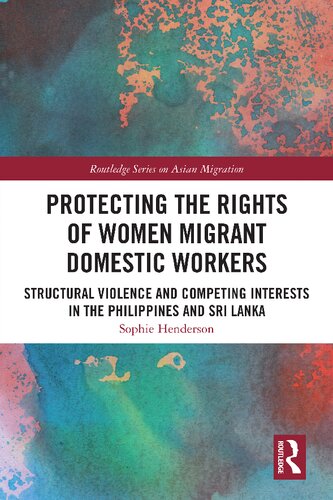

Most ebook files are in PDF format, so you can easily read them using various software such as Foxit Reader or directly on the Google Chrome browser.
Some ebook files are released by publishers in other formats such as .awz, .mobi, .epub, .fb2, etc. You may need to install specific software to read these formats on mobile/PC, such as Calibre.
Please read the tutorial at this link: https://ebookbell.com/faq
We offer FREE conversion to the popular formats you request; however, this may take some time. Therefore, right after payment, please email us, and we will try to provide the service as quickly as possible.
For some exceptional file formats or broken links (if any), please refrain from opening any disputes. Instead, email us first, and we will try to assist within a maximum of 6 hours.
EbookBell Team

4.0
96 reviewsMigrant women across Asia disproportionately work in precarious, insecure, and informal employment sectors that are subject to few regulations, pay low wages, and expose women to harm, of which domestic work is among the most prevalent. This book uses the cases of the Philippines and Sri Lanka to develop a comprehensive, intersectional, rights-based approach to better protect women migrant domestic workers against exploitation.
As accounts of exploitation, gender-based violence, torture, and death among migrant domestic workers increase, the recognition and defence of their human and labour rights is an urgent necessity. The Philippines and Sri Lanka are two of the leading labour-sending states of women domestic workers in Asia, and their economies have become increasingly dependent on the remittances they send back home. Drawing on extensive original research this book argues that these two sending states are guilty of structural violence by sustaining a network of institutions, policies and practices, which serve to systematically disadvantage and discriminate against women migrant domestic workers. The research covers the entire migration process, from pre-departure, through to overseas employment, followed by return and reintegration.
This book’s innovative application of structural violence theory as a way to investigate the role of state institutions in labour-sending countries in the Global South will be of interest to researchers from across the fields of migration studies, gender studies, human rights law, and Asian Studies.